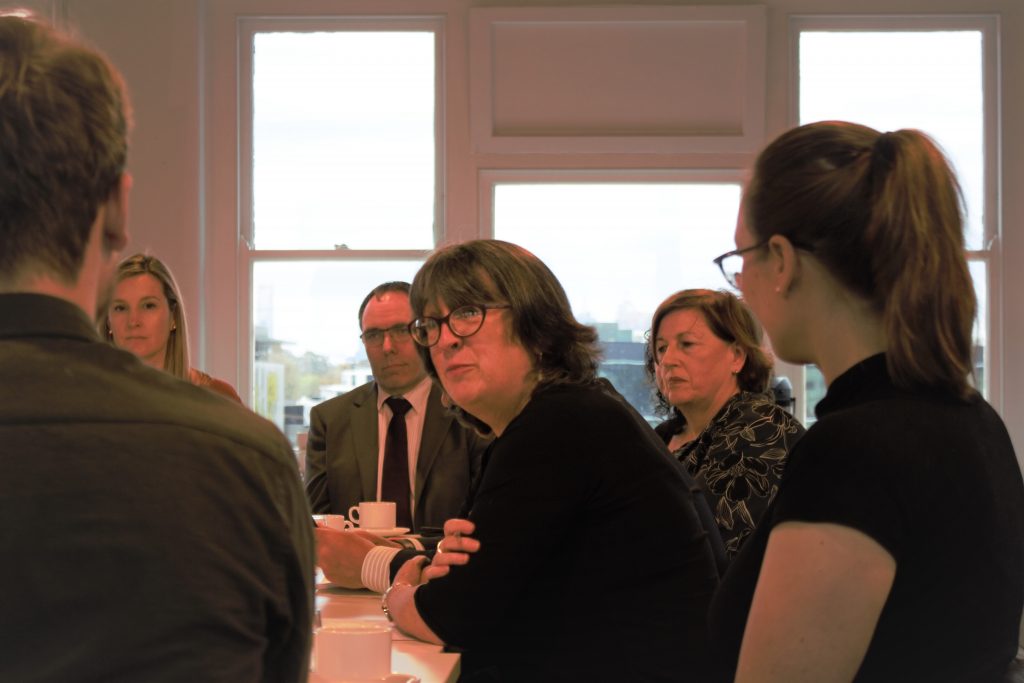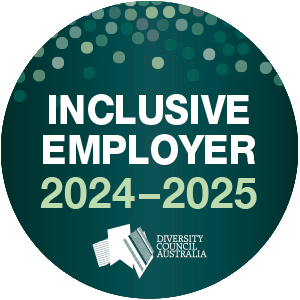No to Violence has released its NSW Election Tour Report 2023 and is urging the new NSW Government to urgently and sustainably fund services that work with men to end family violence.
Ahead of the recent NSW election, No to Violence toured seven areas of the state with higher-than-average rates of police-recorded domestic violence incidents: Blacktown, Penrith, Nowra, Wagga Wagga, Orange, Lismore and Charlestown.
The aim was to hear directly from our members, and people working in the sector, about the challenges of preventing and responding to domestic and family violence in their local communities.
The NSW Election Tour Report 2023 summarises what we heard and what we will advocate for on behalf of our members.
What we heard:
We heard time and again that the sector that works to end men’s family violence is under-funded, under-resourced and under-recognised. We also heard that the sector needs more sustainable funding, not short-term contacts.
Service providers across all seven locations shared similar reflections about what is needed to build a thriving sector in NSW.
No to Violence has summarised what we heard into eight priorities. If actioned by the government, these priorities will support the safety and wellbeing of women and children by holding men accountable for their use of family violence.
What we’re calling for:
- Multi-year funding to create a sustainable sector
- Investing in community-led services
- Supporting a thriving workforce
- Creating housing security
- Increasing access to services
- Enabling collaboration between services
- Embedding primary prevention and early intervention
- Strong political leadership to end men’s family violence
No to Violence Chief Executive Officer Jacqui Watt said it is time to recognise that we cannot stop men’s family violence until we stop men from using violence and abuse.
“Family violence has devastating impacts for families across NSW and remains one of the state’s most critical issues,” Ms Watt said.
“While frontline services are working to meet demand, the safety of women and children is still violated every day.”
A thriving perpetrator intervention sector is crucial to addressing the scourge of domestic violence in NSW – the 2023 NSW Election Tour was part of our wider strategy to make this happen.
In February and March 2023, No to Violence toured NSW ahead of the state election to meet with our members, the domestic and family violence sector and local political candidates.
The aim of the tour was to facilitate a conversation between the perpetrator intervention sector that No to Violence represents, as well as the political hopefuls that are vying for seats, about the challenges of preventing and responding to domestic and family violence in their local communities.
We visited seven locations: Blacktown, Penrith, Orange, Nowra, Lismore, Wagga Wagga and Charlestown.
We would like to extend our sincerest thanks to our members and the wider sector for attending our events and sharing their thoughts. It was great to meet everyone in person after a couple of years of talking to each other through screens.
Our full report and findings will be released next month. Until then, here’s a wrap of the key issues unearthed from the Tour.
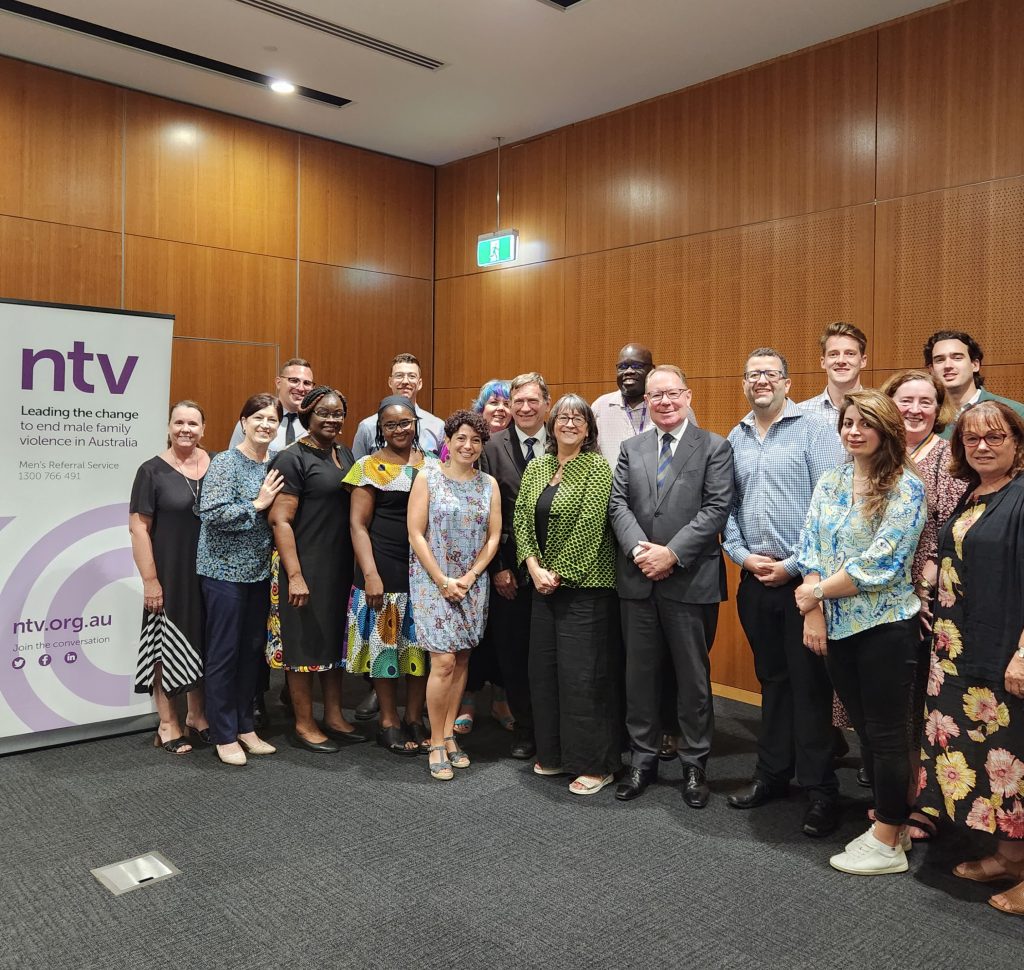
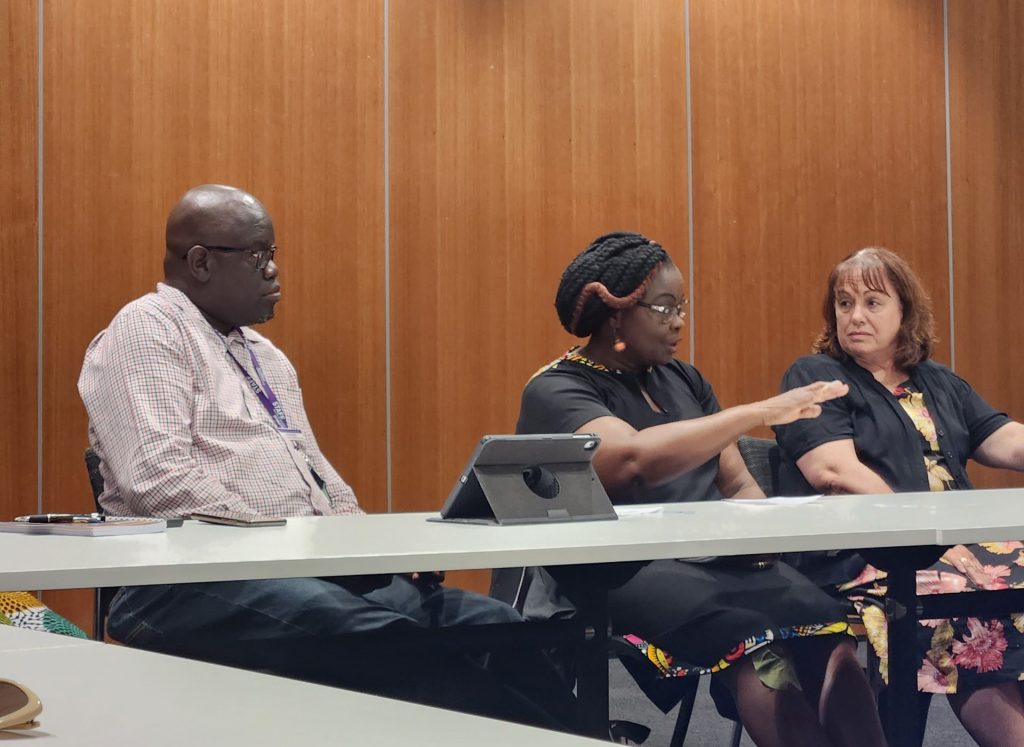
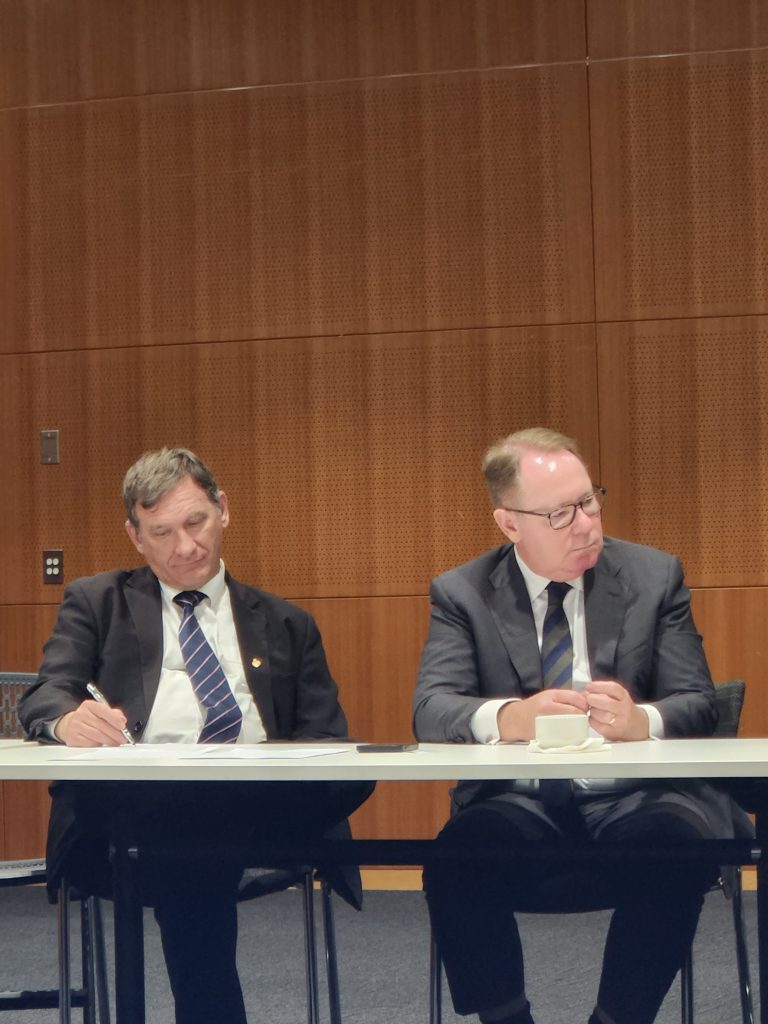
Blacktown
“People are competing against each other for funding, rather than working together. We need collaboration not competition.”
We kicked off our tour in Blacktown at Max Webber Library. We were joined by representatives from Relationships Australia, Catholic Care, Settlement Services International, SydWest, BaptistCare, NSW Legal Aid, and the Institute of Non-Violence, as well as local Labor candidates Hugh McDermott (Prospect) and Stephen Bali (Blacktown).
Blacktown is one of the most culturally and linguistically diverse communities in Australia, with over 70 different languages spoken in homes across the LGA. We heard their calls for the need for culturally-specific men’s behaviour change programs and deeper collaboration across the sector.
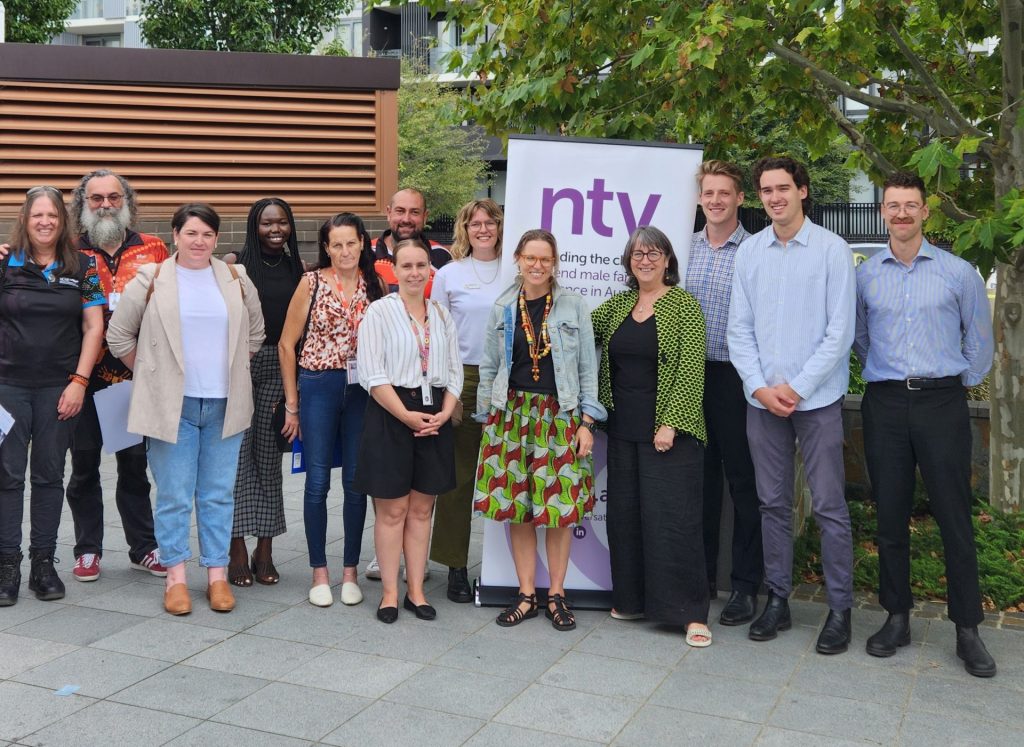
Penrith
“The candidates are showing how much they care, which is clearly very little. No politician has shown up today.”
Representatives from Relationships Australia, Community Restorative Centre, Nepean Community and Neighborhood Services, Western Sydney Community Legal Centre, Mountains Youth Services Team and Transforming Justice Australia joined us for a lively discussion in Penrith.
Despite extending invitations to all local political candidates, we were disappointed to see that none attended the event. It was a missed opportunity to learn about how Penrith’s lack of housing is contributing to high rates of family violence, and that government needs to invest in perpetrator intervention programs that already exist.
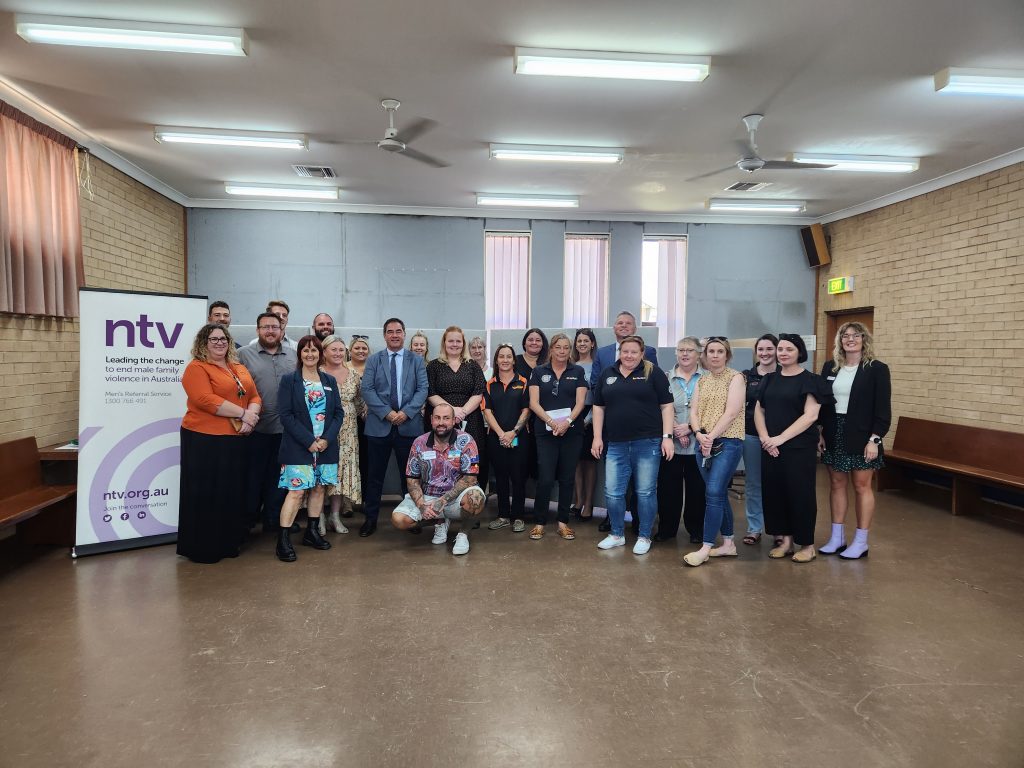
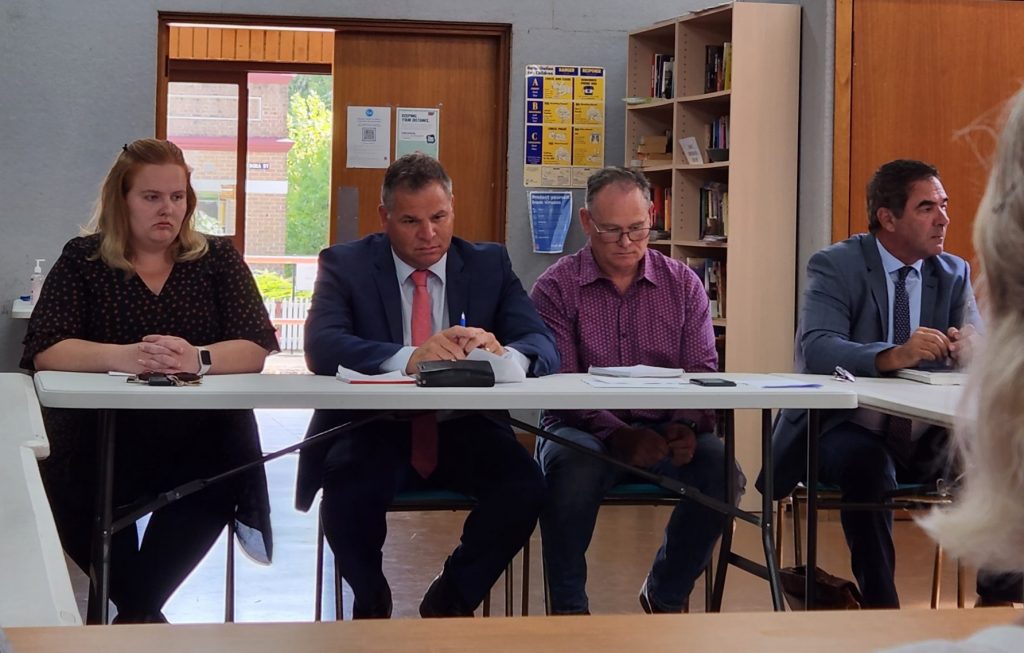
Orange
“We need to get rid of the expectation that men will complete a program and they’ll be ‘fixed.’ We need more funding over longer periods of time.”
In Orange the room was filled with representatives from Mission Australia, Catholic Care, Birrang, Housing Plus, FACS, the Benevolent Society, and Stride, as well as local candidates Heather Dunn (Labor), Philip Donato (Independent) and Tony Mileto (Nationals).
We heard that short-term funding is making it almost impossible to recruit staff, and that the housing crisis is impacting the family violence sector acutely, with victim-survivors unable to access emergency accommodation and perpetrators unable to leave the home while they seek support to change their behaviour.
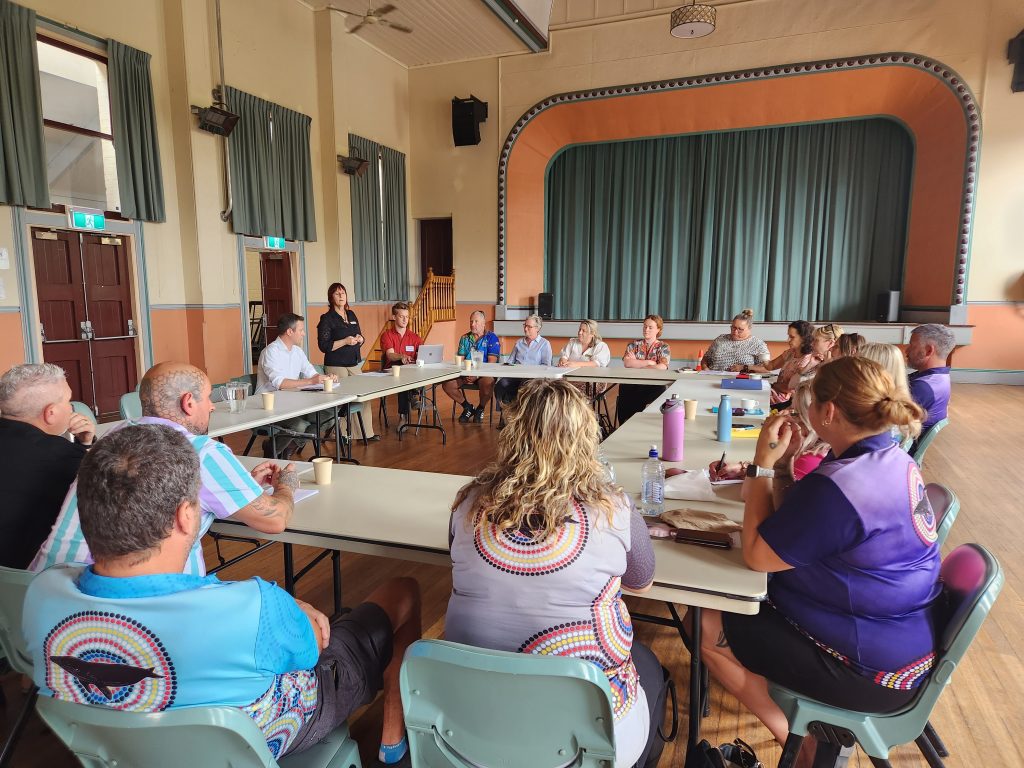
Nowra
“[Aboriginal Community Controlled Organisations (ACCOs)] don’t get funding for tender and policy staff. Meanwhile, larger organisations that get the funding don’t have the expertise to work with communities.”
We had a full house in Nowra, with representatives from Anglicare, Waminda, South Coast Medical Service Aboriginal Corporation, Mission Australia, Illawarra Koori Men’s Support Group, Shoalcoast Community Legal Centre, and the Aboriginal Legal Service, as well as local candidates Liza Butler (Labor), Amanda Findley (Greens), and Luke Sikora (Liberal).
The Nowra community explained the challenges that a lack of funding has created for the sector, with smaller groups, like ACCOs, unable to compete with larger services that have the funding to employ policy and tender staff.
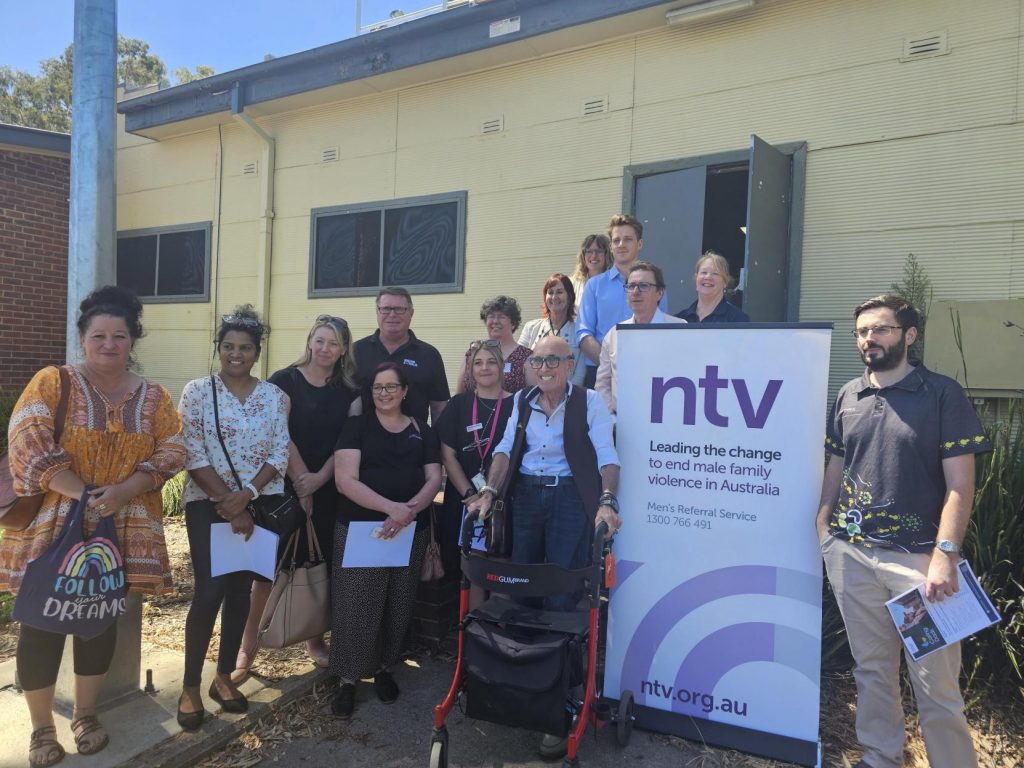
Wagga Wagga
“Albury is the nearest men’s behaviour change program, and that’s 90 minutes away. It’s absolutely ridiculous that there isn’t one here.”
In Wagga Wagga we were joined by representatives from CentaCare NSW, Mission Australia, Relationships Australia, Linking Communities Network (LCN), Taster Property, and Wagga Women’s Health Centre, as well as local candidates Joe McGirr (Independent), Keryn Foley (Labor), and Ray Goodlass (Greens).
There are no accredited men’s behaviour change programs in Wagga Wagga. And with no support for men to take accountability for their violent behaviour, the onus inevitably falls on women to protect themselves and their children. This should never be the case.
We need to do more to shift the burden of responsibility from victim-survivors to the men who use violence.
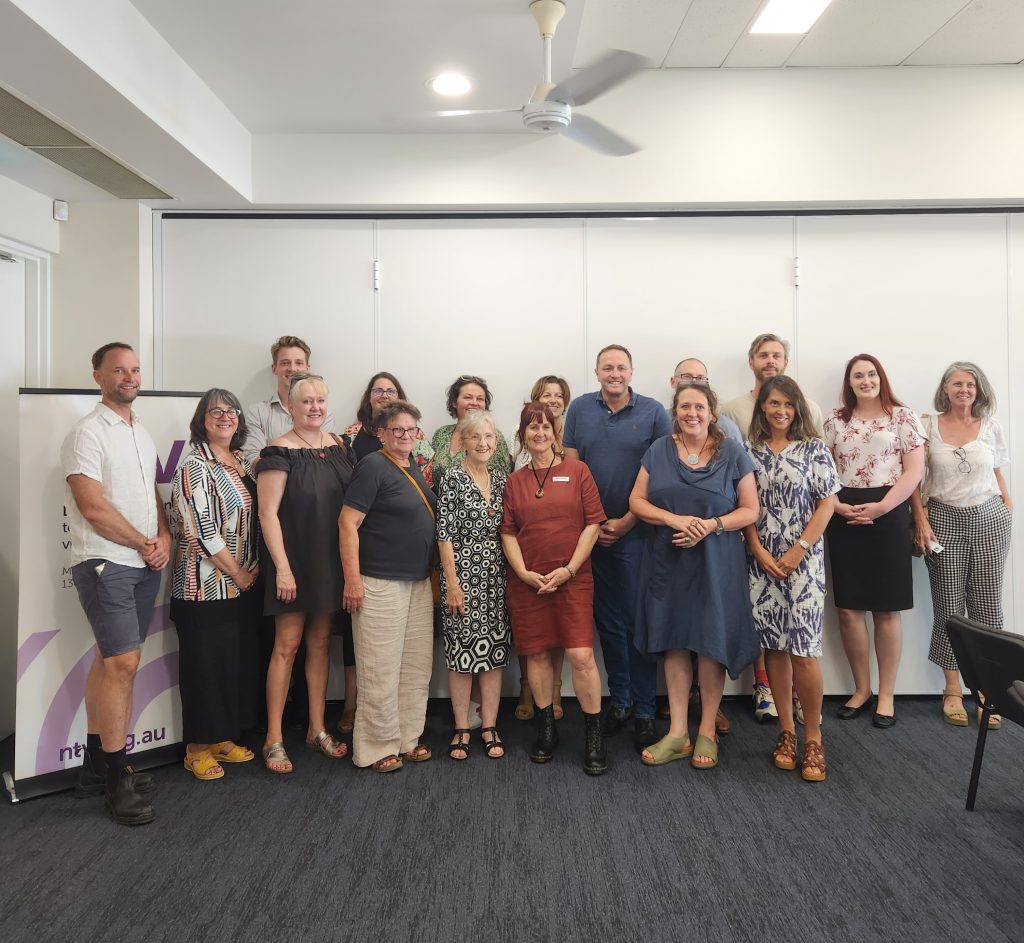
Lismore
“We need safe, affordable, accessible accommodation immediately. We need it yesterday.”
At our Lismore event, we were joined by Women Up North Housing, My Momentum, Northern Rivers Women and Children’s Services (NORWACS), Men and Family Centre, and Bunjum, as well as local candidates Janelle Saffin (Labor), Alex Rubin (Nationals), and Adam Guise (Greens).
The local family and domestic violence sector continues to suffer the effects of the devastating floods, with housing presenting as the most prominent issue. Lismore is crying out for support.
Many of the issues raised in Lismore reinforced what we heard during our previous stops on the Tour. But Lismore faces some unique challenges as the region continues dealing with the aftermath of the 2022 floods. A lack of housing in the area has become a huge barrier to safety, and increased funding is needed to serve and supplement the perpetrator intervention programs and initiatives that currently exist.
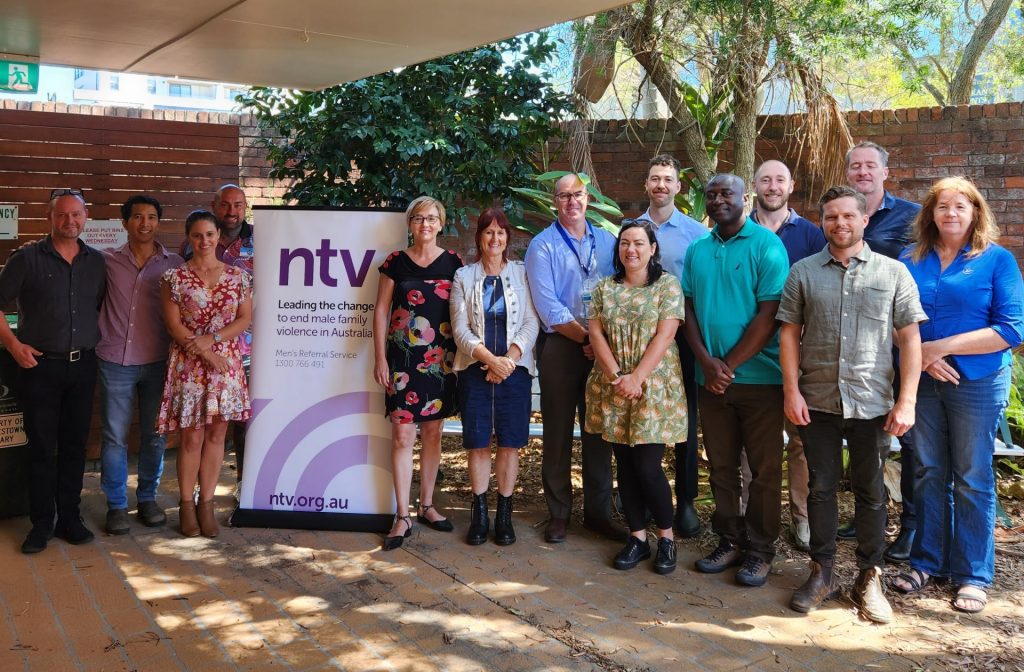
Charlestown
“We have had to take funding from homelessness services and other programs to deliver perpetrator work because we’re not getting any funding to work with men.”
We were joined by representatives from Coast Shelter, CatholicCare, Jenny’s Place, Relationships Australia, Family Support Newcastle, Joplin Lawyers, Port Stephens Family and Neighbourhood Services, Victims of Crime Assistance League and Mosaic Multicultural Connections, as well as local candidates Jodie Harrison (Labor) and Greg Watkinson (Greens) in Charlestown.
Charlestown service providers spoke about the challenges of chronic underfunding, which in the Hunter region has forced service providers to redirect funds from other vital programs in order to work with men. All attendees agreed that funding for perpetrator interventions should be provided on top of the funding that already supports existing services.
Keep an eye out for our final NSW Election Tour Report, which will be released next month
Want to become a No to Violence member and get involved in our next tour? Sign up here.
If you are concerned about someone using violence, call Men’s Referral Service on 1300 766 491 or visit ntv.org.au/get-help/ for advice and support.
No to Violence is touring New South Wales throughout February and March ahead of the upcoming state election. We’ll be meeting with our valued members and the sector that works with men to end family and domestic violence, to hear about your challenges, priorities and hopes for the year.
No to Violence is the largest peak body working to end men’s family violence in Australia, and the only national peak body. We know that the issues regional areas face are different from those in the city, and we want to be on the ground to understand them so we can be your voice.
Over two weeks in February and March, we’ll be meeting with No to Violence members, the Men’s Behaviour Change Network, and hopeful Members of Parliament. We also welcome participants from services who come into contact with men using family violence, including police, legal services, homelessness services, women’s and children’s services.
The New South Wales election is shaping up to be a close fight between the Labor and Liberal governments with a few “teal” independents in the running as well. Family violence needs to be on the agenda. The findings from this tour will inform No to Violence’s advocacy priorities for the next four years and help to get politicians and the media talking about family violence.
I’ll be heading to New South Wales ahead of the upcoming state election, to hear from you in the sector about your experiences on the ground, so we can advocate for you where it counts.” – Jacqui Watt, CEO of No to Violence
To kick off the tour, No to Violence CEO Jacqui Watt will be the keynote speaker at the two-day Working With Men to End Family Violence virtual conference at The Hatchery. Then we’ll be heading to Blacktown, Penrith, Orange, Nowra, Wagga Wagga, Lismore and Charlestown.
If you would like to come along, please use the Eventbrite links below to register your attendance.
We hope to see you there.
Schedule:
- Blacktown – Monday 27th of February
- Penrith – Monday 27th of February
- Orange – Tuesday 28th of February
- Nowra – Wednesday 1st of March
- Wagga Wagga – Monday 6th of March
- Lismore – Tuesday 7th of March
- Charlestown – Friday 10th of March
